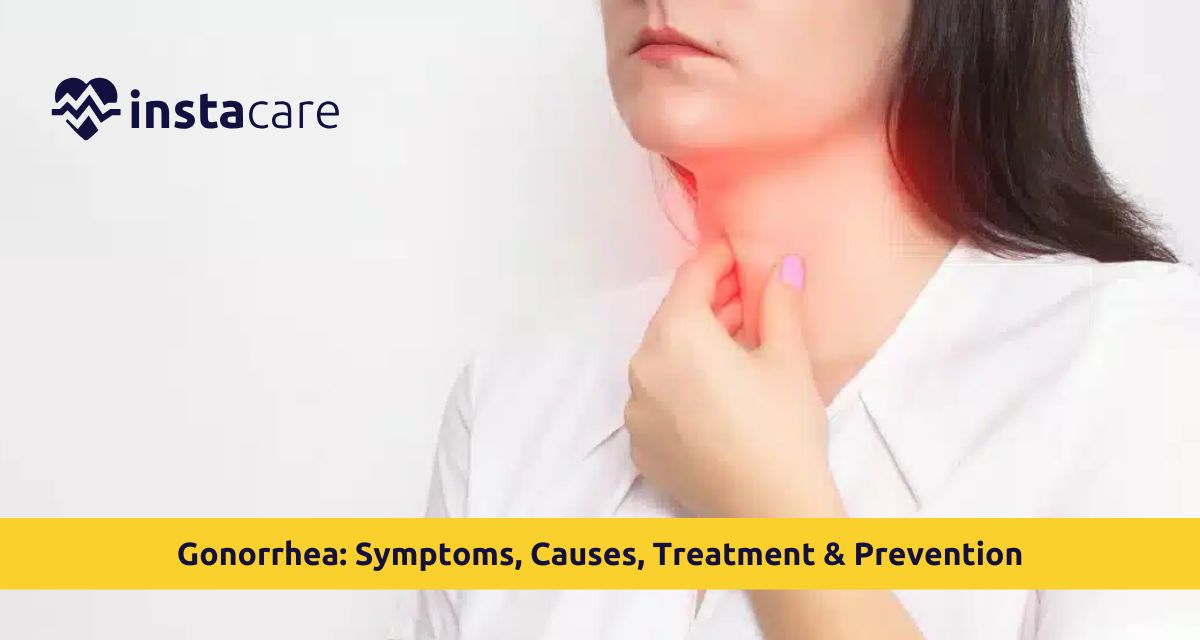What is Gonorrhea?
The STI caused by the bacterium Neisseria gonorrhoeae; it was conveniently referred to as gonorrhea. The site of infection is the genital tract; however, it can also spread to the throat and rectum. Therefore, symptomatology, causation, treatment, and prevention should be brought to the attention of patients for good management of the said disease.
Signs and Symptoms of Gonorrhea
On the whole, gonorrhea has symptoms, but only in an occasional instance and especially among women; this is because the women tend to be but for once quite asymptomatic. But then symptoms, when they do appear, can vary from case to case.
Symptoms of Gonorrhea in Men:
In men, it is usually the symptoms that are in plain sight. The most common of these symptoms is some burning sensation while urinating, which can be painful. Added to this would be an output of pus-like cream from the penis, which may be yellowish or green in color. Pain and swelling of the testis, also known as epididymitis, might be other possible symptoms. Another aggravation to these untreated symptoms could very much give rise to serious complications.
Symptoms of Gonorrhea in Women:
Typically, women show smaller acts of symptoms compared to the ones with gonorrhea, thus making the identification that has much to do with differences. Some signs are increased lassie discharge, possibly with variances from the normal characteristic or color. It is also possible to have painful urination combined with abnormal bleeding such as
menstrual bleeding in-between or even after sexual intercourse. Because these signs are slight, some women may only realize that they had the infection after complications set in.
Other Symptoms Includes
Gonorrhea could also infect the rectum and the throat. In rectal gonorrhea, there might be anal discharge together with itching and painful bowel movements.
Sore throat and difficulty swallowing may occur during the infection of the throat, but most will not exhibit any symptoms. This character of gonorrhea aids in the transmission, as people pass the infection unknowingly.
Understand Gonorrhea Causes & Risk Associated
Mainly, gonorrhea is caused by the bacteria known as Neisseria gonorrhoeae, which are transmissible through sexual intercourse. Knowing how the infection is transmitted will help in preventing the infection.
Means of Transmission
By far, the commonest means of passing on the infection are through vaginal, anal, and oral sex with an infected partner; at birth, an infected mother can pass on bacteria to her child, leading to severe health consequences, such as blindness or joint infections.
Risk Factors
Many factors increase the possibility of developing gonorrhea.
- The absence of condom-protected sexual intercourse for some people is one of the most visible risk factors.
- The more partners there are, the greater the chances of exposure, including a person's previous history of STIs which may predispose him to gonorrhea itself. MSM, for example, has shown much higher risks from the sexual patterns that prevail within this group.
- Untreated gonorrhea would pose a real threat to life and health. If not treated, untreated gonorrhea in females will lead to pelvic inflammatory disease that results as primary infertility, chronic pelvic pain, and ectopic pregnancies.
- This is similar to males, who might have very painful complications of untreated gonorrhea such as epididymitis in addition to swelling of the testis. In addition, gonorrhea with its inflammatory responses would pose a bigger risk of acquiring an HIV infection for both sexes.
View More: Graves Disease
Treatment of Gonorrhea
Gonorrhea can be treated with antibiotics, and quick treatment is needed to prevent complications.
Antibiotics
The treatment of gonorrhea includes dual therapy, which consists of an intramuscular injection of ceftriaxone for a single dose and that of azithromycin for a single oral dose. Dual therapy eliminates the infections as well as preventing developing antibiotic resistance.
Follow Up
The post-treatment follow-up tests are required to determine whether the infection has been cleared completely. However, reinfection can emerge, and thus screening should be done routinely among individuals at high risk. Treatment for sexual partners is important to prevent reinfections and transmission from one partner to the other.
Good Health Habits
Good health habits form the basis for regularly preventing oneself from gonorrhea.
Practicing Safe Sex
Condoms are the most effective means of prevention inasmuch as they do act as barriers against the transmission of bodily fluids during sexual activities. Moreover, one should reduce the total number of sexual partners to limit the probability of such exposition.
Regular Health Check-ups
Regular STI tests are, in general, suggested for sexually active persons with multiple partners. Early discovery and treatment are of huge significance in the maintenance not only of your health but also in the prevention of spread of the infection. Generally, annual testing would be recommended by most healthcare professionals among sexually active women under 25 and high-risk individuals.
Open Communication
It would be great if a couple can set apart their intimate moments to talk about what each one wants and expects from the use of condoms. Open communication builds trust leading to safer behavior. It is important that one feels comfortable discussing their sexual health and any potential risks with their partner.
Conclusion
Gonorrhea is one of the infectious threats available in comprehensive sexually transmitted infections. Awareness of symptoms, transmission, and prevention can empower individuals to keep both partners safe and healthy. Regular health check-ups and open communication about sexual health prove critical in preventing gonorrhea and even beyond that, towards overall wellbeing. In case of any possible exposure or symptoms, immediate medical consultation with tests and treatment advice should be sought. One can empower oneself through proactivity and a substantial force against further spreading into the community.
Please book an appointment with the
best Gynecologist in Lahore, Karachi, Islamabad, and all major cities of Pakistan through
InstaCare, or call our helpline at 03171777509 to find the verified doctor for your disease.

